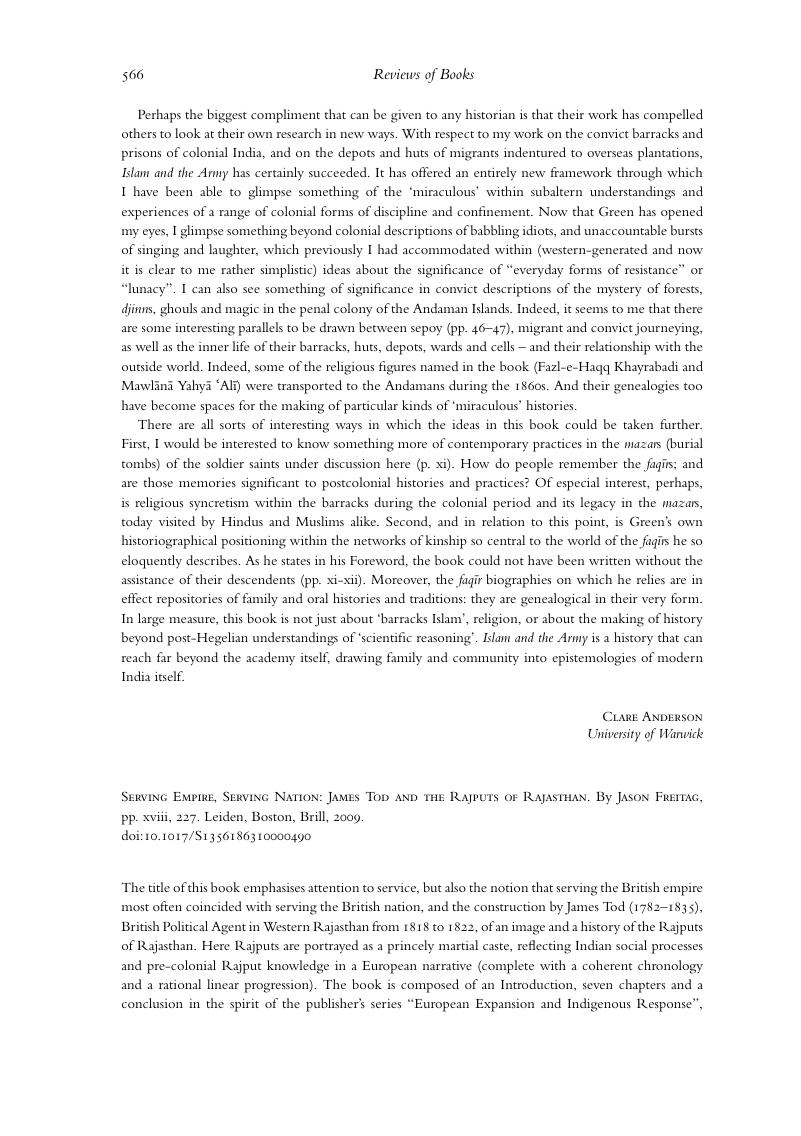No CrossRef data available.
Article contents
Serving Empire, Serving Nation: James Tod and the Rajputs of Rajasthan. By Jason Freitag, pp. xviii, 227. Leiden, Boston, Brill, 2009.
Published online by Cambridge University Press: 21 October 2010
Abstract

- Type
- Book Review
- Information
- Copyright
- Copyright © The Royal Asiatic Society 2010
References
1 See Inden, Ronald, Imagining India, a Cambridge MA (later published, Oxford, 1990)Google Scholar; Kolff, Dirk H.A., Naukar, Rajput and Sepoy: the ethnohistory of the military labour market in Hindustan, 1450–1850 (Cambridge, 1990)Google Scholar; Peabody, Norbert, “Tod's Rajasthan and the boundaries of imperial rule in 19th century India”, in: Modern Asian Studies, 30.1, 1996, pp. 185–220CrossRefGoogle Scholar.
2 Dirk Kolff (in a recent e-mail communication to me) maintains that European feudalism should not be considered as similar to Rajput clan bonds and military practices because Europe legalises while India negotiates, rendering Indian practices of land control and military service much less binding and less longlasting than the practices of European feudalism.
3 See Chatterjee, Partha, Nationalist Thought and the Colonial world: a Derivative Discourse (Minneapolis, 1986)Google Scholar.




